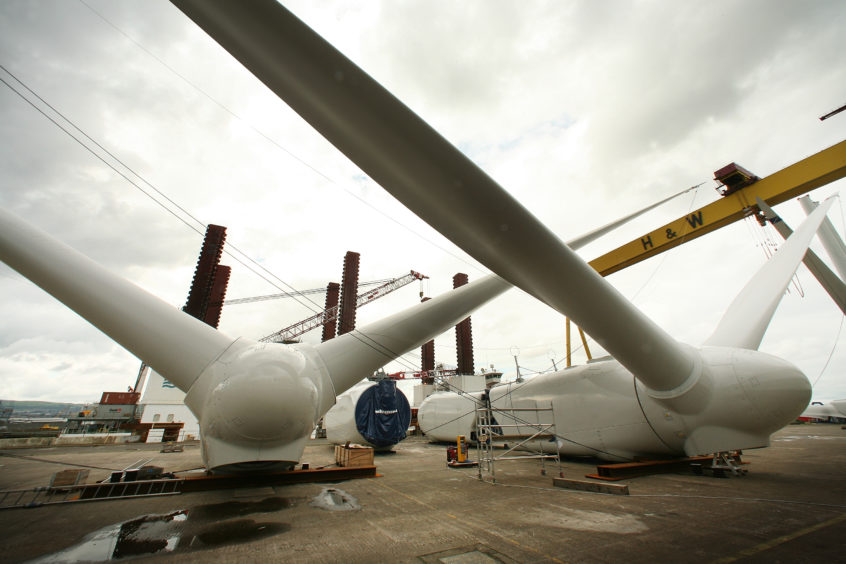
Two bids to buy Belfast’s struggling shipyard are “valid and credible”, the local MP has said.
Harland and Wolff built the doomed Titanic along with a host of other ocean liners and helped supply the Second World War effort, but recently suffered financial challenges and entered administration, threatening around 125 jobs.
DUP East Belfast MP Gavin Robinson met administrators from BDO Northern Ireland on Monday.
He said: “It is incredibly encouraging to hear that not only is there private interest but there is investment potential, that the bidders recognise the skills and the assets of Harland and Wolff shipyard and want to run it as a going concern.
“So, from that perspective, the administrators outlined a very positive mood in the meeting today.”
Mr Robinson added: “The administrator is going to have to take the next number of weeks to drill through those bids and to work with those bidders to secure a positive future for the yard.”
Those overseeing the process recently allowed further time to explore potential rescue deals for the famous shipyard.
BDO announced the continuation of a temporary unpaid lay-off of the workforce to facilitate ongoing “positive discussions” with would-be buyers.
While the workers are no longer getting paid, the lay-off means their contracts of employment remain unbroken.
Mr Robinson confirmed the administrators had secured two bids from valid and credible bidders who wanted to invest in the yard and the process was continuing.
He said: “The process the administrator is going through is the right one. He is out in the market, he has sought valid bids.
“There is investment there for Harland and Wolff interested in securing not only the assets but the skilled workforce that we know Harland and Wolff has, and that is a positive thing.
“It is something we want to continue our engagement with the administrator and the unions on, and make sure we secure the future for Harland and Wolff.”
Famed for building the Titanic, the shipyard went into administration recently after its troubled Norwegian parent company, Dolphin Drilling, failed to find a buyer.
The shipbuilder, whose famous yellow cranes Samson and Goliath dominate the Belfast skyline, employed more than 30,000 people during Belfast’s industrial heyday but that workforce numbered only around 125 when the company went into administration.
The business had diversified away from shipbuilding in the last two decades and until recently had primarily worked on wind energy and marine engineering projects.
Known around the world for building the White Star liner Titanic, which sank on its maiden trans-Atlantic voyage in 1912 after striking an iceberg, Harland and Wolff was one of the UK’s key industrial producers during the Second World War, supplying almost 150 warships.
Its workers, who have occupied the site 24/7 for weeks as part of a high-profile campaign to save their jobs, have called on the Government to step in to rescue the operation through nationalisation.
Prime Minister Boris Johnson has been urged to follow the lead of the Scottish Government, which has intervened to save the Ferguson Marine shipbuilding yard in Glasgow.
The Government has resisted calls for direct action at Harland and Wolff, claiming its troubles are a commercial issue.
Recommended for you
